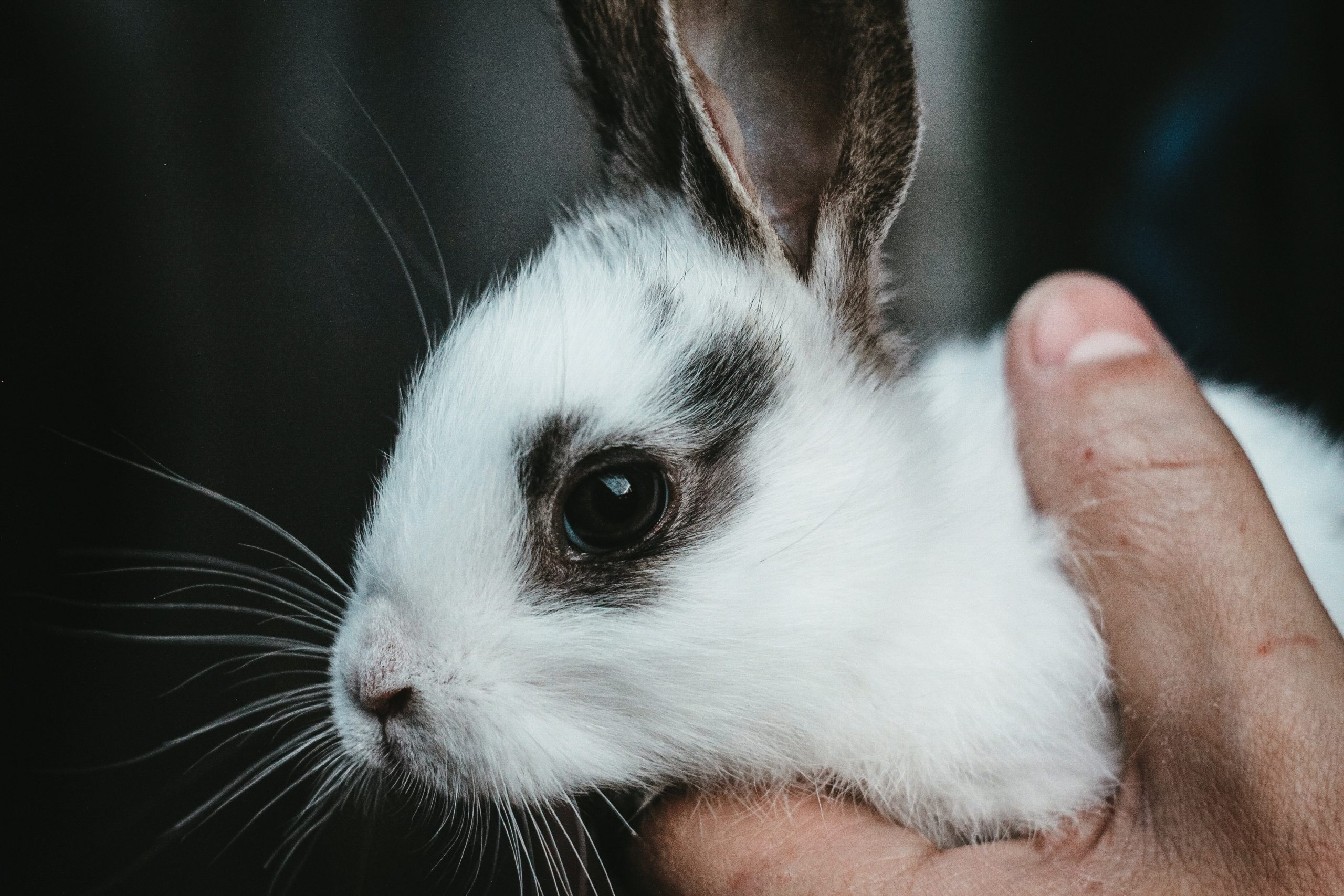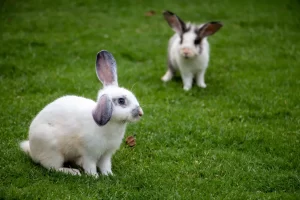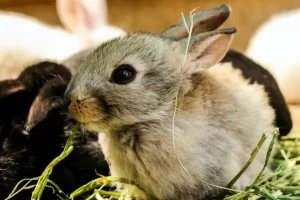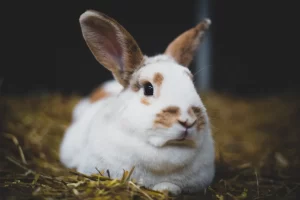Do you ever feel like your rabbit is giving you the cold shoulder? It can be disheartening when you're trying to bond with your furry friend but aren't sure if they actually like you.
But don't worry, there are signs you can look out for to determine if your rabbit is truly not feeling the love. From their body language cues to their lack of bonding behaviors, this article will help you decode your rabbit's feelings towards you.
Key Takeaways
- Lack of eye contact and bonding behaviors such as grooming or allowing grooming can indicate that your rabbit doesn't like you.
- Avoidance and hiding in certain situations, communication difficulties, and trust issues are signs that your rabbit may not have a positive bond with you.
- Aggressive or fearful reactions like growling, scratching, and biting, along with a tense posture and flattened ears, suggest that your rabbit dislikes or fears you.
- An unwillingness to interact or play, withdrawn behavior, and a lack of response may indicate that your rabbit is stressed, anxious, or uninterested in bonding with you.
Body Language Cues to Watch For
If your rabbit avoids eye contact and keeps its ears pinned back, it may be indicating that it doesn't like you. Rabbits communicate through their body language, and understanding these cues can help you build a better relationship with your furry friend.
Pay attention to their ear position and tail movement. When a rabbit's ears are pinned back against their body, it usually means they're feeling defensive or scared. Similarly, if their tail is tucked tightly against their body, it can indicate discomfort.
In addition, observe their eye contact and body posture. If a rabbit avoids making eye contact with you and stays hunched or crouched, it may signal that they're feeling threatened or anxious.
Lack of Bonding Behaviors
You may notice a lack of bonding behaviors between you and your rabbit. This could be a sign that your rabbit doesn't feel a strong connection with you.
One common sign of this is unresponsive behavior. If your rabbit seems disinterested in interacting with you, such as not coming when called or not showing excitement when you approach, it could indicate a lack of bond.
Another indicator is a lack of grooming. Rabbits are social animals that groom each other as a form of bonding. If your rabbit doesn't groom you or allow you to groom them, it may suggest a lack of bonding.
It's important to be patient and give your rabbit time to warm up to you, as building a bond takes time and effort.
Avoidance and Hiding
You may notice your rabbit avoiding you and hiding in certain situations. This behavior can be a sign of communication difficulties and trust issues. Rabbits are sensitive creatures, and they rely on nonverbal cues to communicate. If they feel uncomfortable or threatened, they may retreat and hide.
It's important to understand that rabbits have their own unique personalities and preferences. Some rabbits may take longer to warm up to their owners, while others may be naturally more reserved.
Building trust with your rabbit takes time and patience. Spend quality time with them, offer them treats, and create a safe and calm environment. By respecting their boundaries and allowing them to come to you on their terms, you can help foster a stronger bond and overcome any communication difficulties or trust issues.
Aggressive or Fearful Reactions
When your rabbit becomes aggressive or fearful, it's important to create a calm and safe environment to help them feel more secure. This won't only protect you from harm but also help your rabbit overcome their negative emotions. Here are some signs to look out for:
- **Growling and scratching**: If your rabbit starts growling or scratching, it could indicate that they're feeling threatened or territorial. It's essential to give them space and avoid any sudden movements.
- **Biting and lunging**: Aggressive rabbits may resort to biting and lunging when they feel frightened or cornered. It's crucial to avoid provoking them further and give them time to calm down.
- **Avoidance and hiding**: In the previous subtopic, we discussed how rabbits may avoid or hide from you if they don't like you. However, it's essential to differentiate between avoidance due to fear and avoidance due to dislike.
- **Body language cues**: Pay attention to your rabbit's body language, such as tense posture, flattened ears, or thumping hind legs. These signs can indicate fear or aggression.
Unwillingness to Interact or Play
If your rabbit seems uninterested in interacting or playing, it may be a sign that they're feeling stressed or anxious. Withdrawn behavior and a lack of response can indicate that your rabbit isn't enjoying their time with you.
Rabbits are social animals and require mental stimulation and companionship to thrive. If they appear disinterested or avoidant, it's essential to assess their environment and interactions with you.
Make sure they've a comfortable and safe space, provide them with plenty of toys and hiding spots, and spend quality time bonding with them. Take note of any changes in their behavior and consult with a veterinarian if you suspect your rabbit is experiencing stress or anxiety.
Frequently Asked Questions
Can Rabbits Understand Human Emotions?
Rabbits have emotional intelligence and can sense human emotions. They are perceptive creatures who pick up on subtle cues. So, if your rabbit doesn't seem to like you, it may be because they are sensing your negative emotions.
How Long Does It Usually Take for a Rabbit to Bond With Its Owner?
Factors such as the rabbit's age, past experiences, and environment can influence the bonding process with its owner. To speed up bonding, spend quality time together, offer treats, and create a safe and comfortable space.
What Should I Do if My Rabbit Shows Signs of Aggression Towards Me?
To handle aggression from a rabbit, it's important to build trust. Start by giving them space and avoiding sudden movements. Use positive reinforcement, such as treats and gentle petting, to encourage positive behavior.
Are Certain Rabbit Breeds More Prone to Disliking Human Interaction?
Certain rabbit breeds may be more prone to disliking human interaction due to their natural temperament variations. However, factors such as early socialization, handling, and positive experiences can greatly influence the bond between rabbits and humans.
Is It Possible for a Rabbit to Dislike One Family Member but Not Others?
It is possible for a rabbit to have preferences when it comes to human interaction. Observing their body language can give you clues about their comfort level. Building trust with a rabbit is key.
Conclusion
In conclusion, understanding your rabbit's body language and behavior is crucial in determining if they don't like you. Look for cues such as avoiding eye contact, hiding, or displaying aggressive reactions.
If your rabbit shows a lack of bonding behaviors and unwillingness to interact or play, it may be a sign that they aren't fond of you.
Remember, deciphering your rabbit's feelings can sometimes feel like cracking a code, but with patience and observation, you can build a strong and loving relationship with your furry friend.





